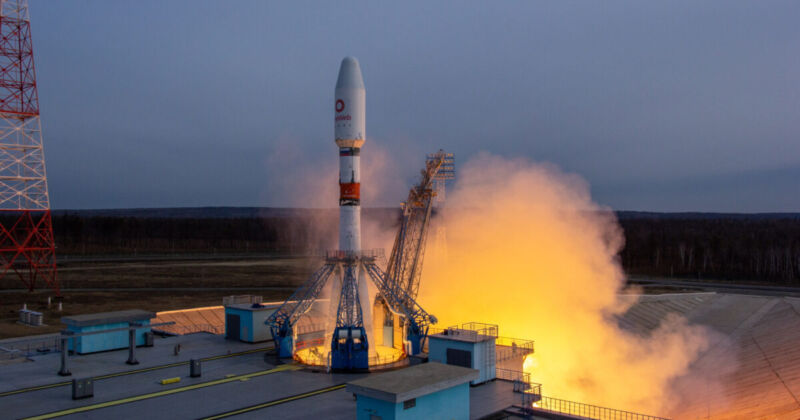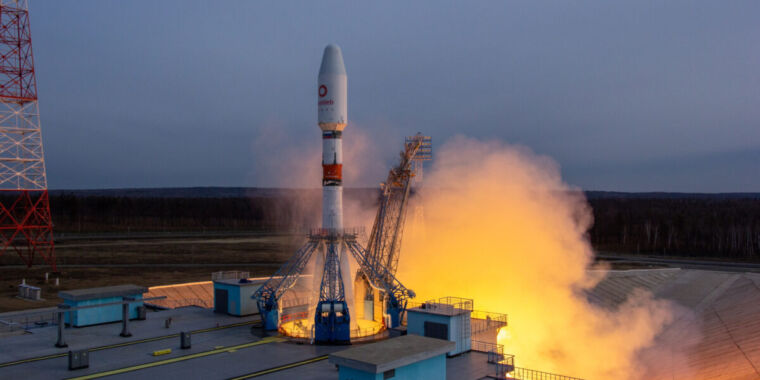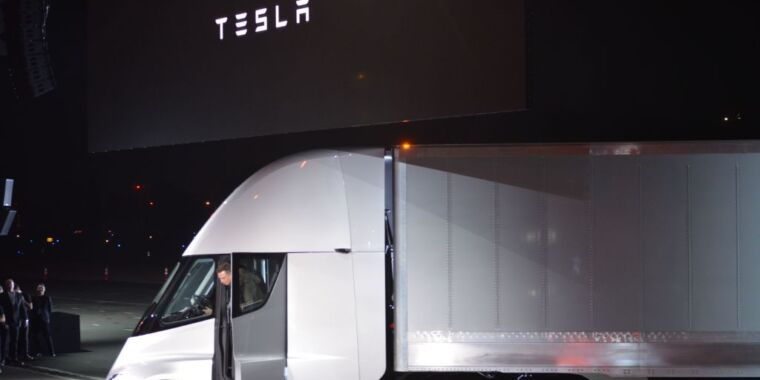
OneWeb
There’s one thing that can be definitively said about broadband communications company OneWeb: It’s a survivor.
The company has persisted through several different owners, a bankruptcy, having its satellites taken as hostages amid a regional war, and nearly completing a satellite Internet constellation in low-Earth orbit. Now, the London-based company is set to take the next step in its meandering but persistent journey toward success.
As early as Tuesday, December 6, a batch of 40 satellites is due to launch on SpaceX’s Falcon 9 rocket from Launch Complex 39A in Florida. SpaceX, of course, is a competitor in satellite broadband Internet.
From Russia, without love
OneWeb was founded a decade ago by a tech entrepreneur named Greg Wyler, who had a vision of bringing Internet access to everyone around the world. Then known as WorldVu, Wyler’s company attracted a variety of investors, including Sir Richard Branson of the Virgin Group.
The company’s plans have remained consistent over time. As early as 2015, OneWeb intended to build 648 small satellites and deploy them in low-Earth orbit to provide low-latency, high-speed Internet access directly to small user terminals. This was a similar business model to the one SpaceX would adopt around the same time with its Starlink Internet service.
One problem for such a business is that it is extremely capital-intensive. It requires a company to not only devise the technology needed to facilitate satellite communications but to build them and the ground terminals and procure more than a dozen launches to get the constellation into space. Costs for this can easily reach $5 billion before significant revenue is generated.
Perhaps unsurprisingly, then, OneWeb filed for bankruptcy in March 2020 and laid off more than 400 of its 500 employees. This seemed like the end as COVID-19 closed in on the world, but new owners led by the United Kingdom government and the India-based multinational Bharti Global stepped in and purchased the company. They organized new investors, and later in the year, OneWeb started to launch satellites again.
For this purpose, OneWeb had relied primarily on Russia’s Soyuz rocket, the cheapest commercially available alternative to SpaceX’s Falcon 9 rocket. After a dozen operational launches from spaceports in Russia and Kazakhstan, however, Russia invaded Ukraine. At the time, nearly three dozen satellites were stranded in a Russian processing facility in Baikonur, Kazakhstan, awaiting launch.
The chief of Russia’s space program at the outbreak of the war, Dmitry Rogozin, issued two demands that OneWeb must adhere to before he would launch the stranded satellites. One, he said, OneWeb must guarantee that its satellites will not be used for military purposes. And two, the UK government must give up its ownership of OneWeb. Needless to say, the partnership between OneWeb and Russia ended.
At the time, OneWeb had launched about 75 percent of its planned constellation.








